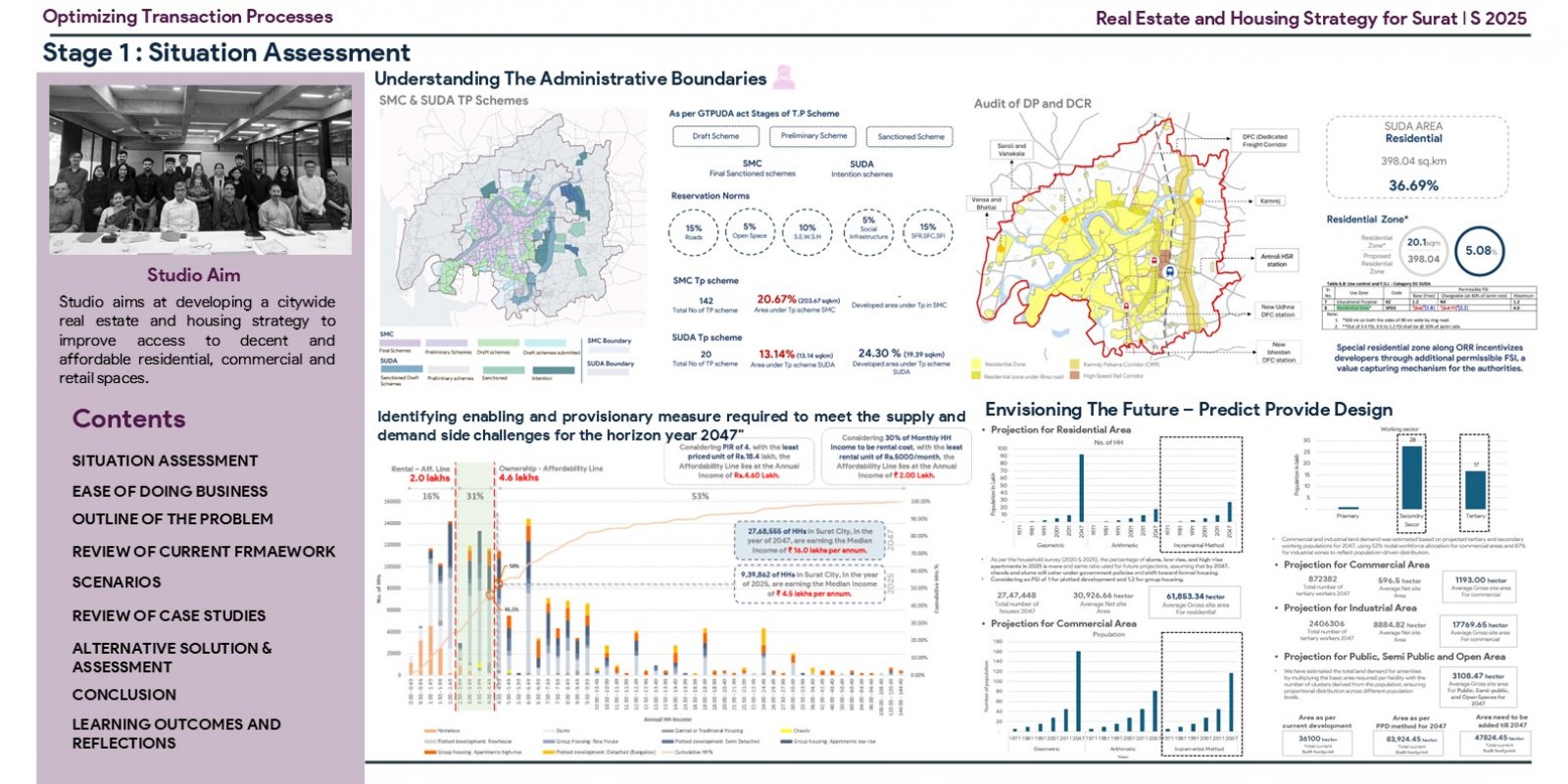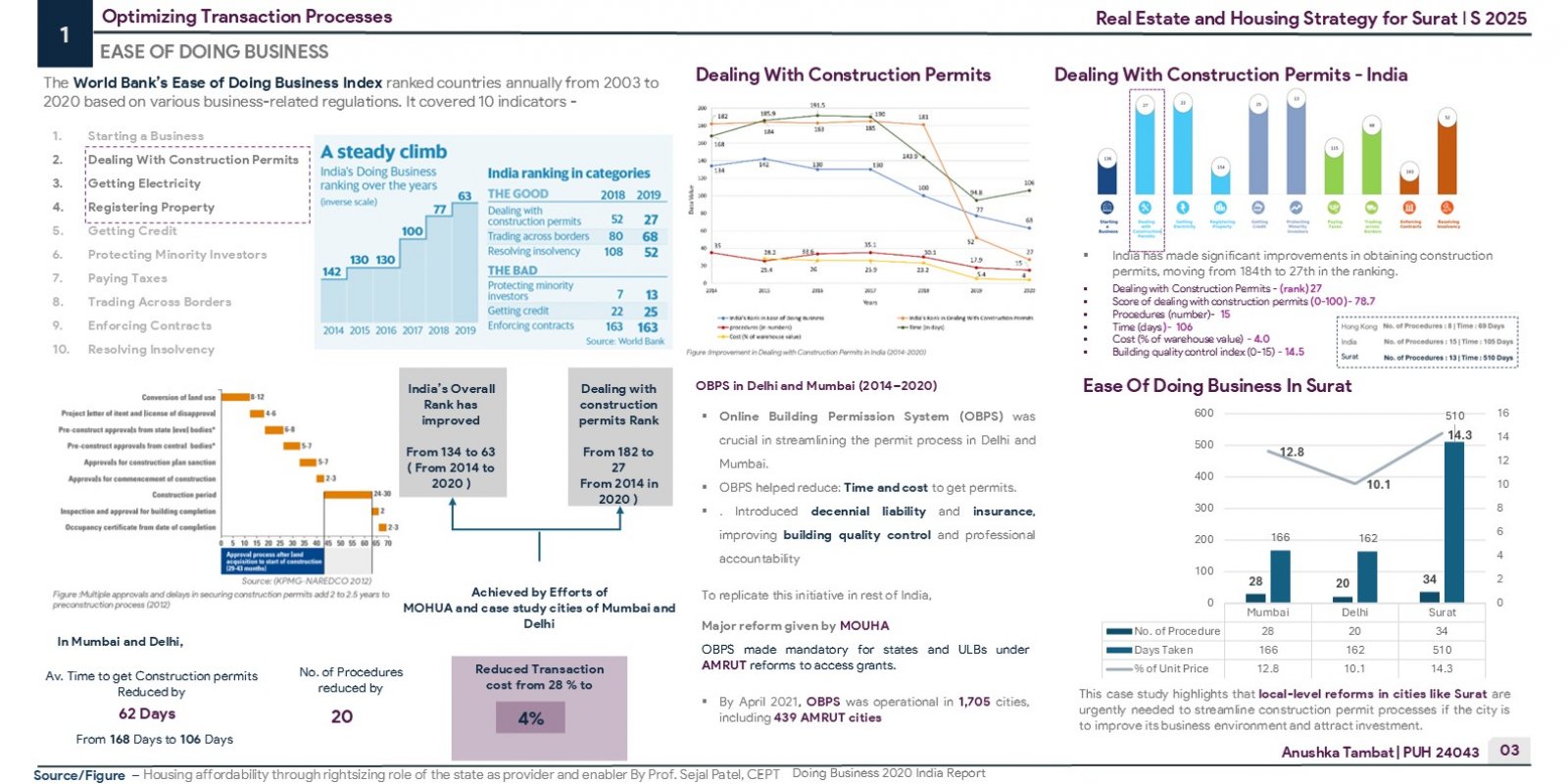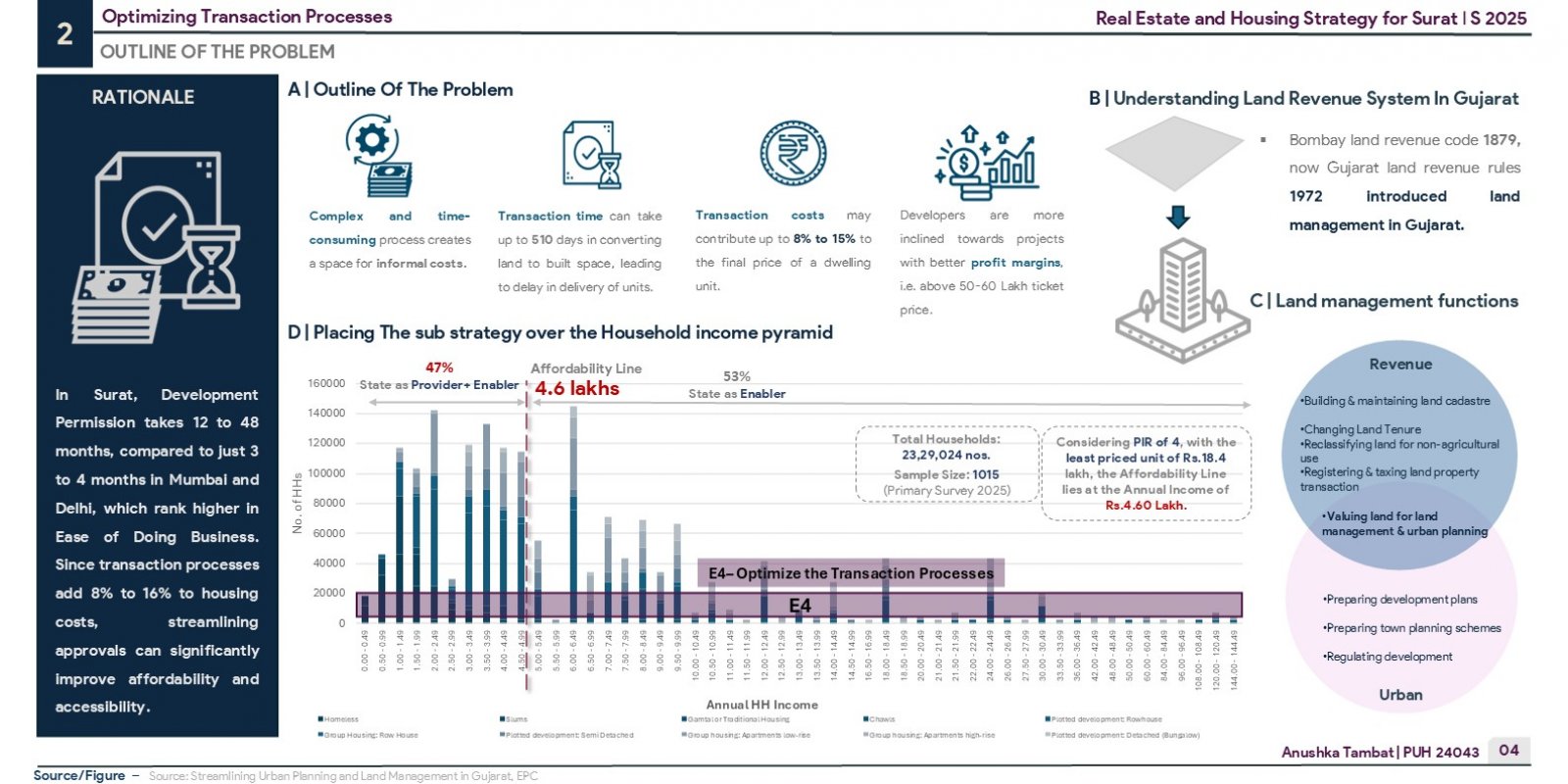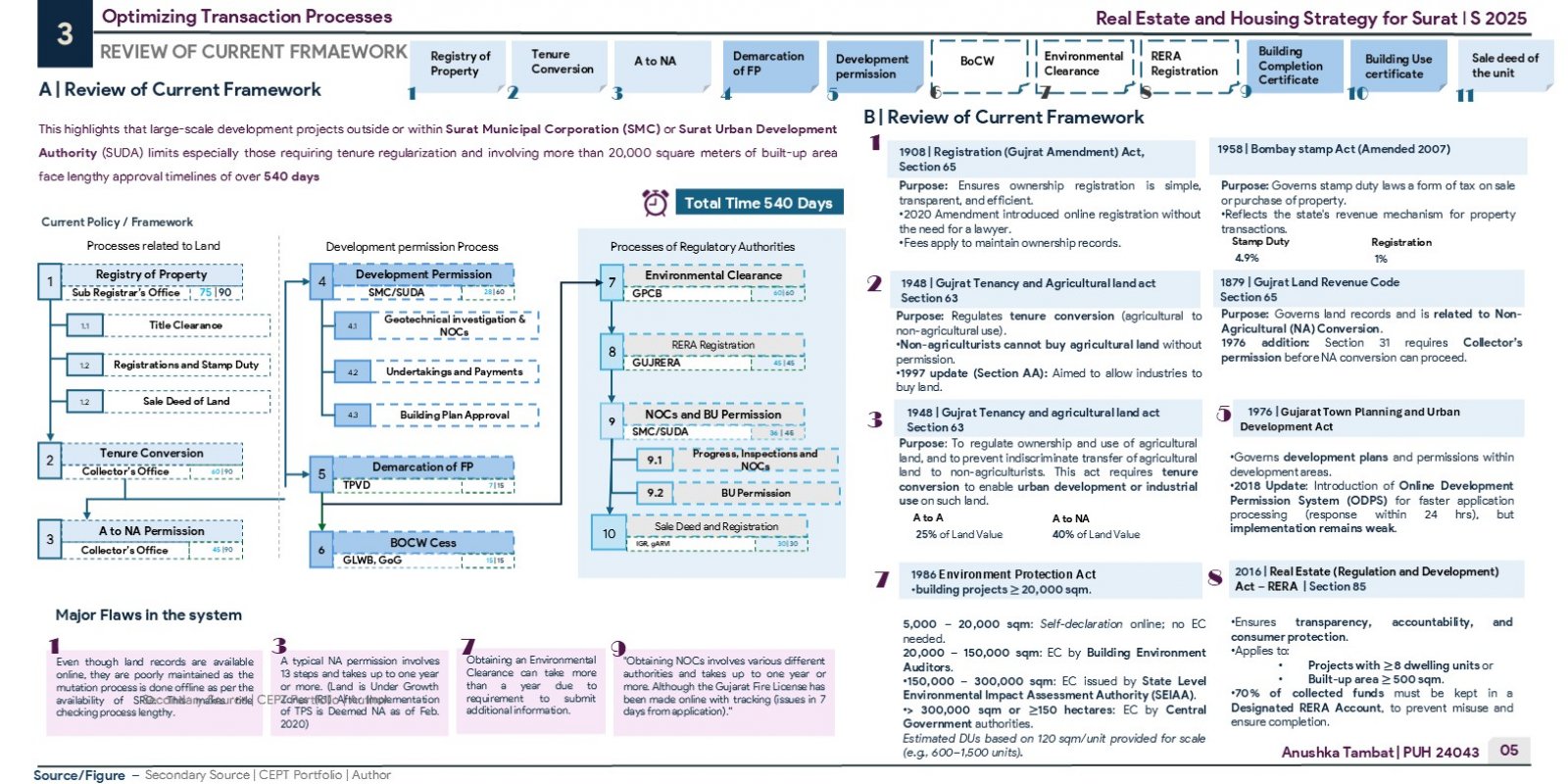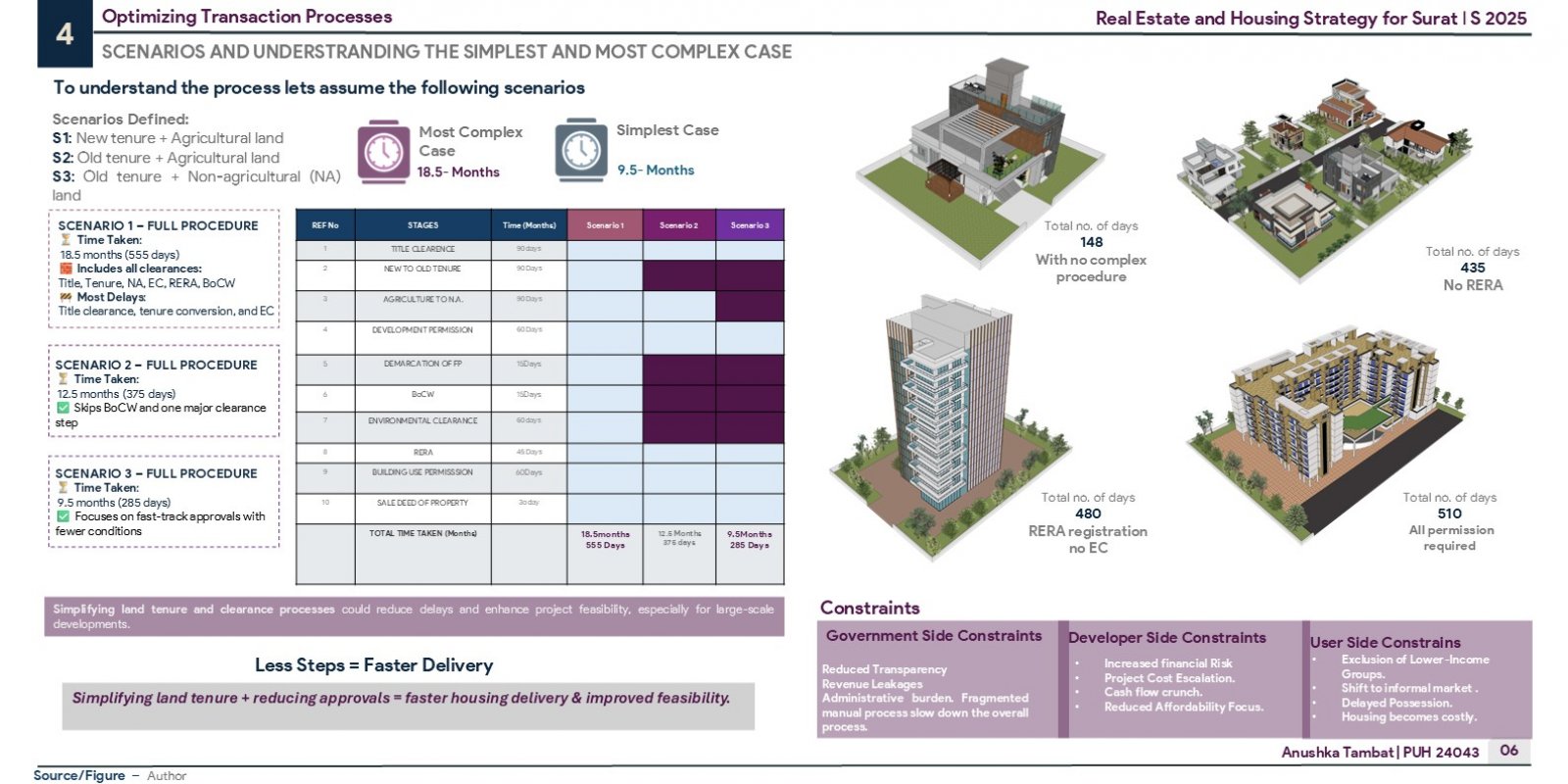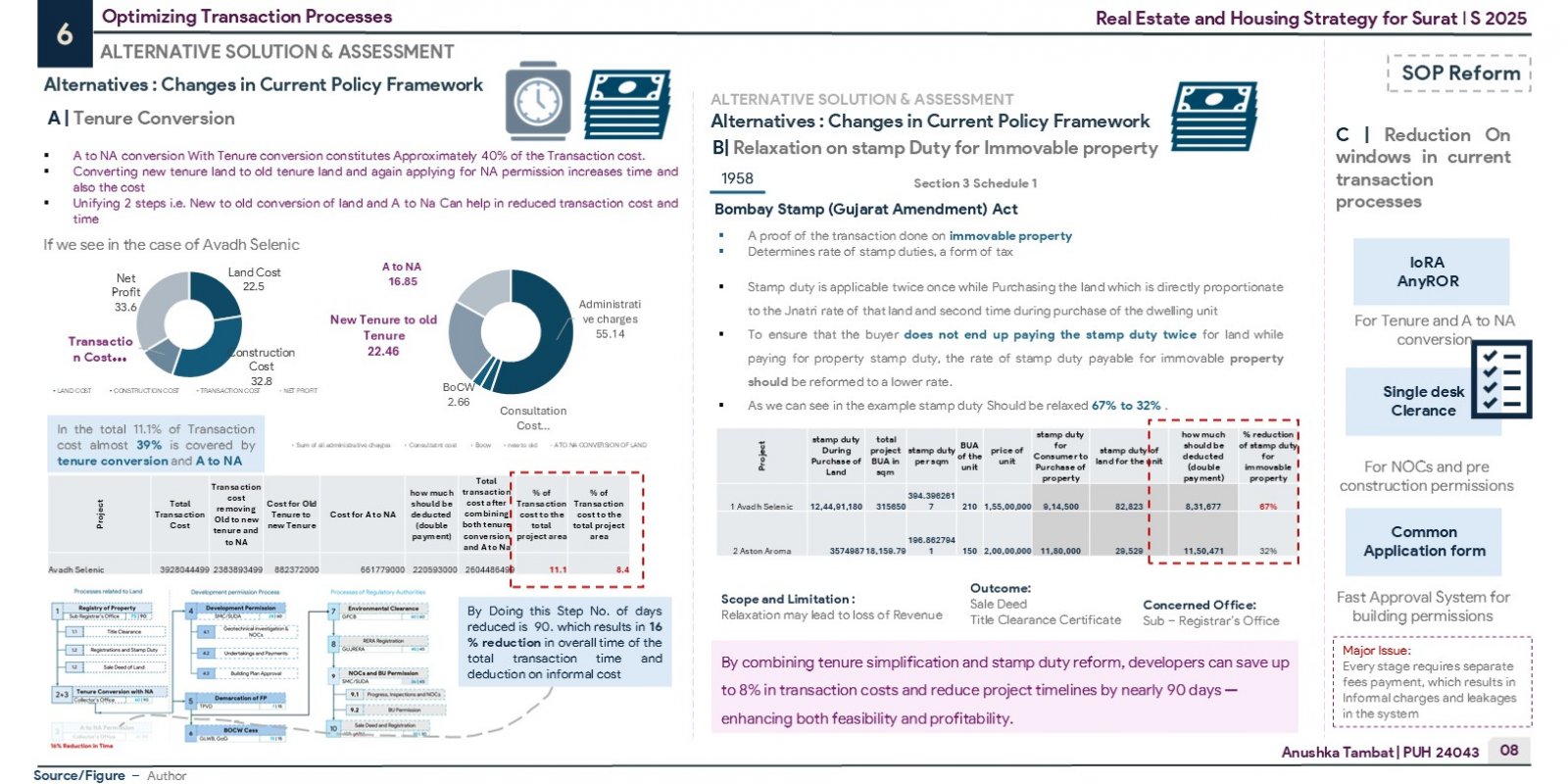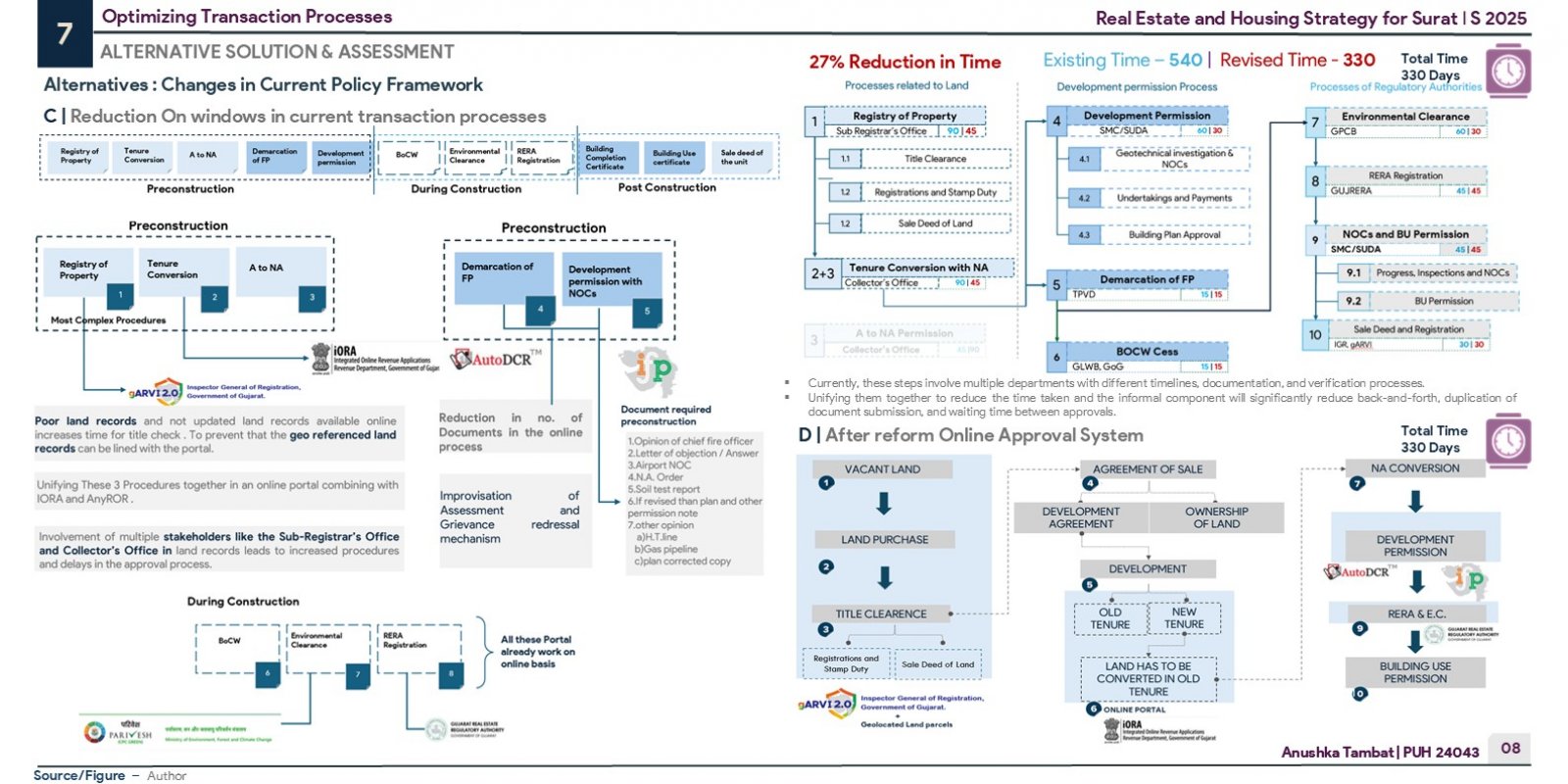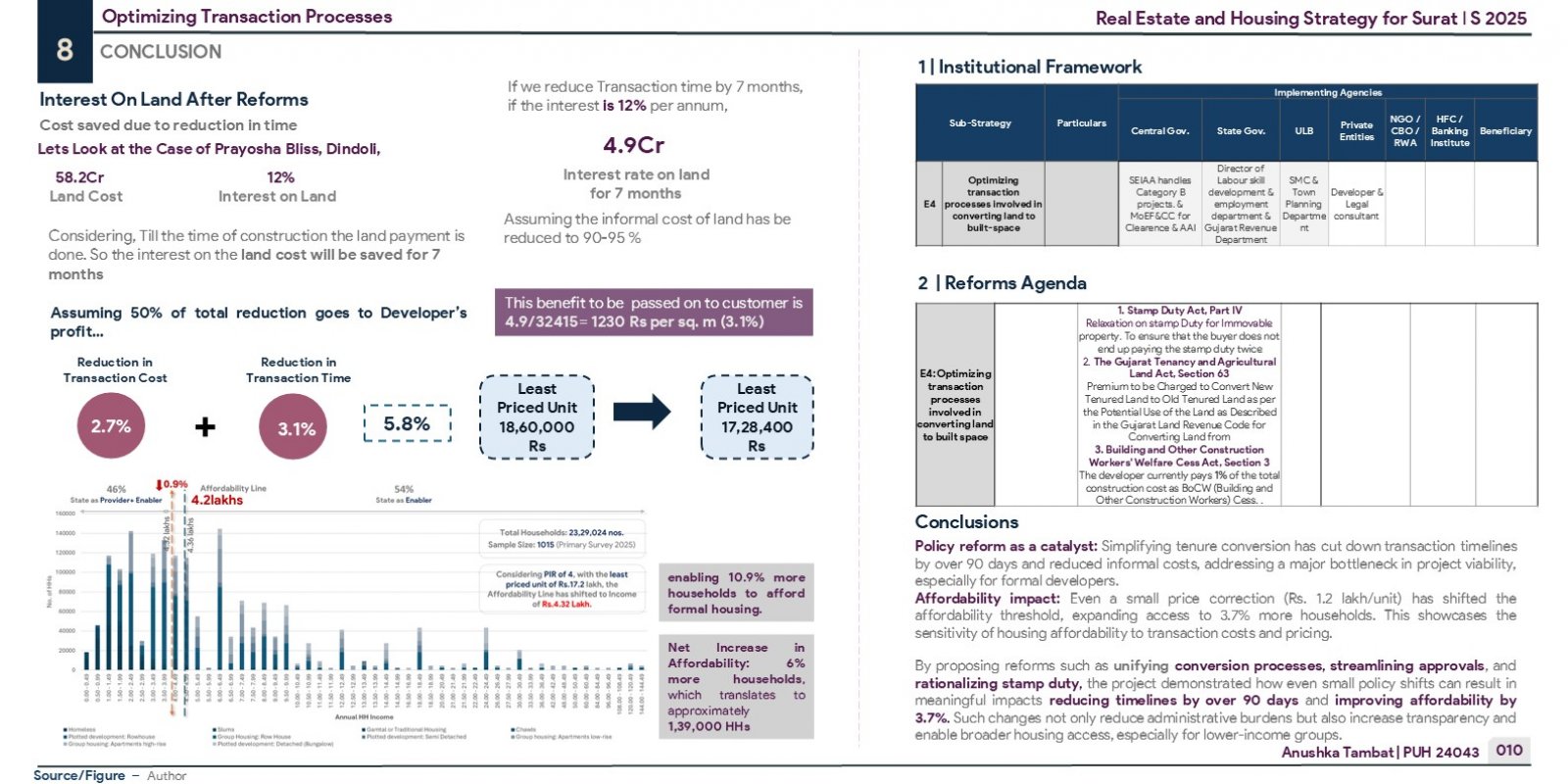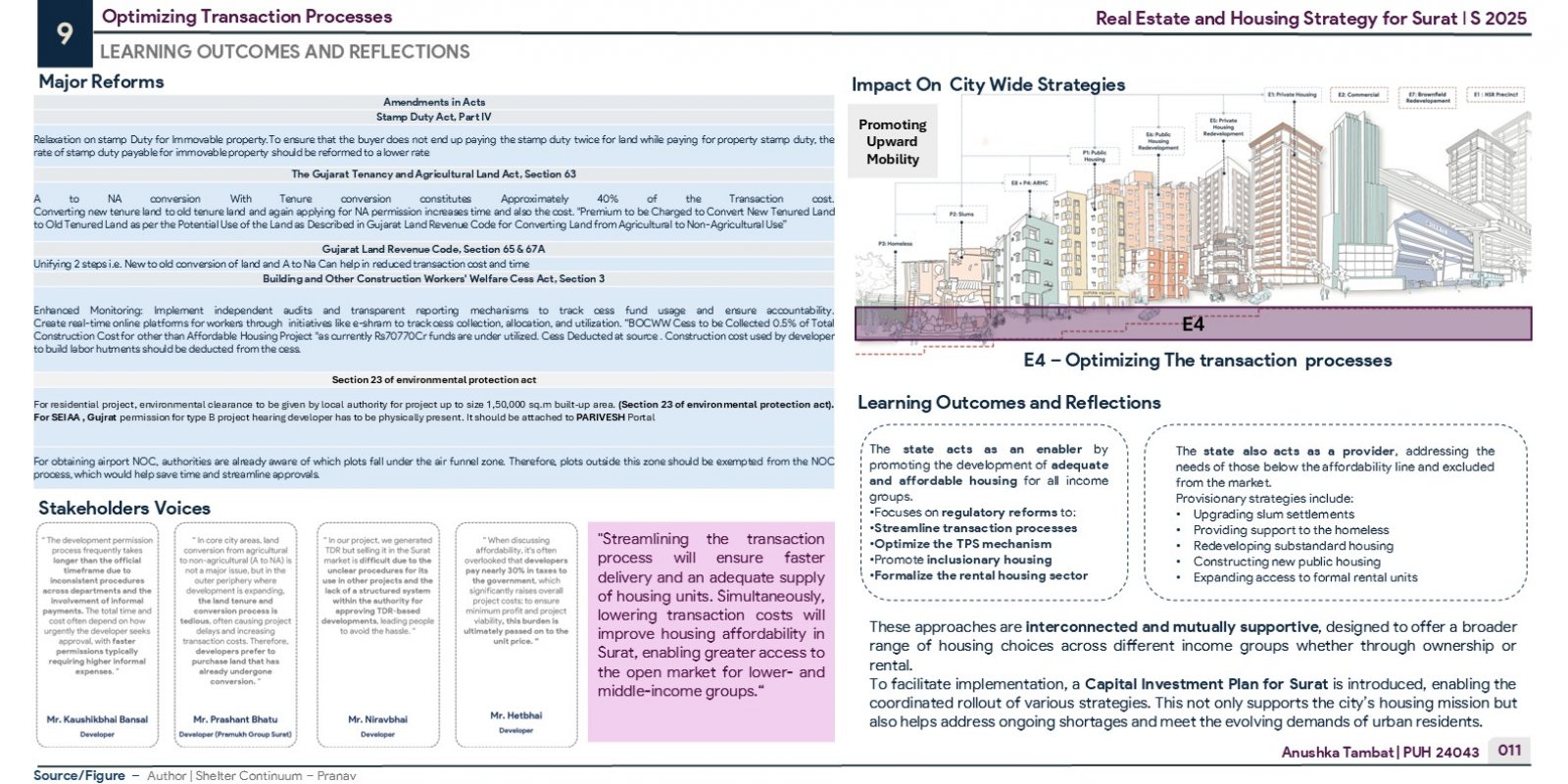Your browser is out-of-date!
For a richer surfing experience on our website, please update your browser. Update my browser now!
For a richer surfing experience on our website, please update your browser. Update my browser now!
This Housing Strategy Studio, anchored in the urban context of Surat, focuses on decoding and restructuring the transactional journey from land to built space. It critically examines institutional and regulatory interfaces such as land titling, development permissions, layout approvals, and service provisioning that often delay or inflate the cost of housing supply. Through a layered analysis of primary and secondary data, the studio explores how inefficiencies in these transaction chains impact housing affordability and market responsiveness. By simulating future housing needs and assessing the socio-spatial demand spectrum, it proposes enabling strategies to simplify procedural frameworks, integrate digital governance tools, and reduce entry barriers for formal housing markets. The goal is to make the urban land market more transparent, predictable, and capable of supporting inclusive housing outcomes. Studio Introduction: Introduces the objective of optimizing transaction processes to improve housing delivery in Surat.
View Additional Work